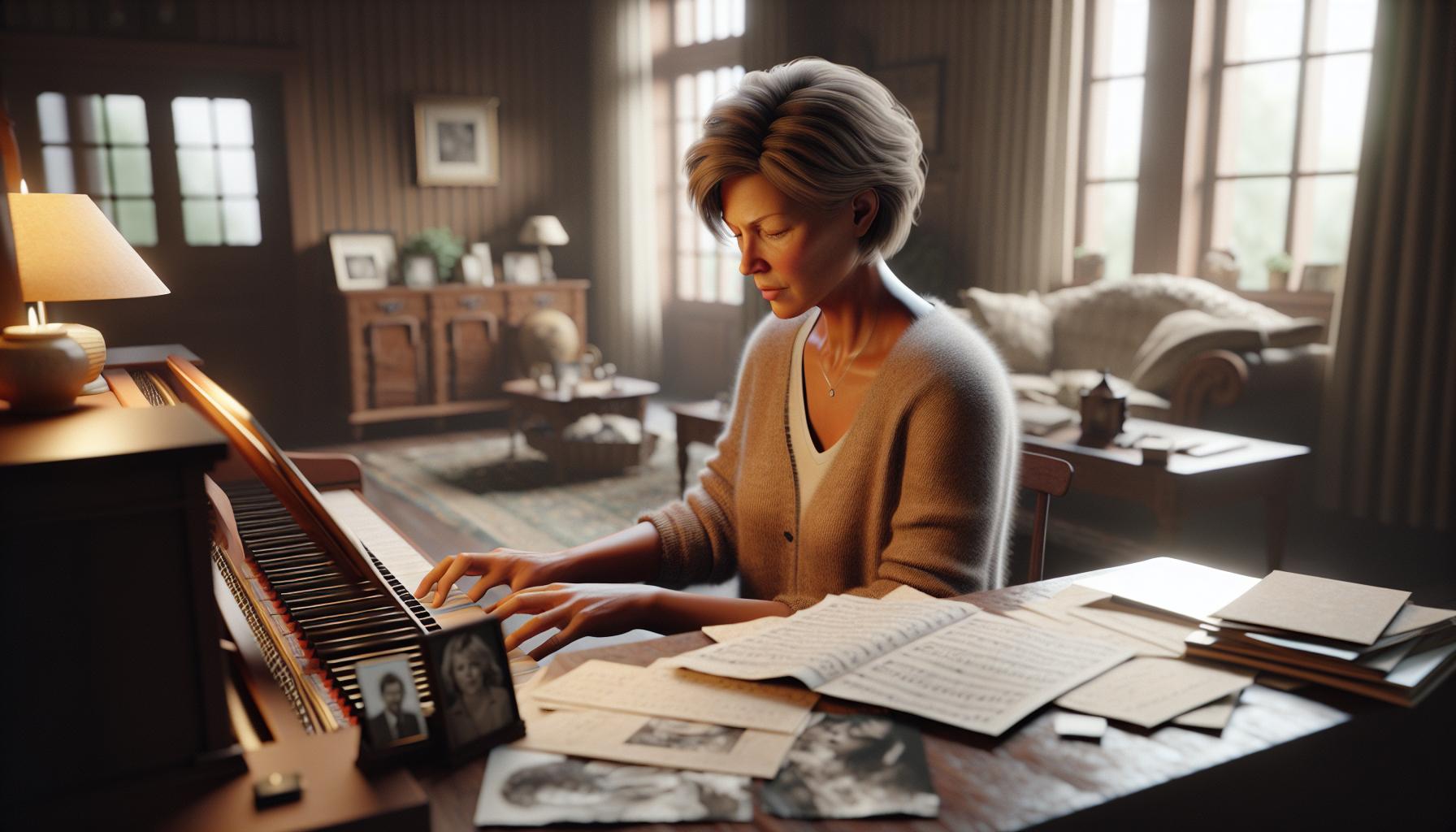Learning to play the piano as an adult can feel like a daunting challenge, but it’s also one of the most rewarding journeys I’ve embarked on. Whether you’ve always dreamed of creating beautiful music or want to rediscover a childhood passion, it’s never too late to start. The thrill of hitting those keys and watching melodies unfold is an experience that transcends age.
As I navigated this path, I discovered that adult learners bring unique strengths to the piano. With patience and dedication, I found that the journey is not just about mastering notes but also about personal growth and self-expression. Join me as I share insights, tips, and encouragement for anyone ready to embrace the piano and unlock their musical potential.
Key Takeaways
- It’s Never Too Late: Adults can successfully learn the piano, tapping into their unique strengths for personal growth and self-expression.
- Cognitive and Emotional Benefits: Playing piano enhances cognitive functions like memory and problem-solving while also promoting emotional well-being through creative self-expression.
- Addressing Challenges: Effective time management and a growth mindset help overcome common challenges such as self-doubt and frustration during the learning process.
- Choosing Learning Methods: Opt for a method that fits your lifestyle, whether it’s traditional lessons for personalized guidance or online courses for flexibility.
- Set Realistic Goals: Breaking down larger objectives into smaller, manageable tasks using SMART criteria helps maintain motivation and ensures steady progress.
- Establish a Practice Routine: Consistency is key—dedicating specific times for focused practice sessions enhances skill development and integrates piano playing into a busy adult life.
Learning to Play Piano as an Adult
Learning to play the piano as an adult offers numerous benefits that enhance both mental and emotional well-being. Engaging with music fosters a well-rounded skill set and supports personal development in various ways.
Cognitive Advantages
Learning the piano exercises the brain and improves cognitive functions. Playing requires concentration, memory retention, and problem-solving skills. Studies show that adults who engage in musical activities exhibit increased cognitive flexibility and improved memory. While practicing scales or reading sheet music, I strengthen neural connections, enhancing skills like multitasking and pattern recognition. Additionally, mastering a new song enhances discipline and perseverance, valuable traits in many life aspects.
Emotional Well-being
Learning the piano fosters emotional health by providing a creative outlet for self-expression. Engaging with music can alleviate stress and reduce anxiety levels. Performing pieces I love brings joy and satisfaction, contributing to a sense of accomplishment. Furthermore, immersing in music allows for moments of mindfulness, promoting relaxation and mental clarity. Building a connection with the piano helps me manage emotions effectively, leading to an overall improved mood and a greater sense of fulfillment.
Overcoming Common Challenges

Learning piano as an adult presents unique challenges, but addressing these hurdles can make the experience more enjoyable and rewarding.
Time Management
Time management poses a significant challenge. Balancing work, family, and social commitments leaves little room for practice. Setting a consistent schedule helps. I allocate specific times each week for practice, treating them as non-negotiable appointments. Incorporating short practice sessions, like 20-30 minutes, ensures progress without overwhelming my day. Using a planner or digital reminders keeps me accountable and motivated.
Self-doubt and Frustration
Self-doubt often creeps in during the learning process. It’s common to compare my progress to that of others, which can lead to frustration. Embracing a growth mindset proves valuable. Celebrating small victories, like mastering a piece or technique, boosts confidence. I focus on personal progress rather than perfection. Seeking support from online communities or local groups allows me to share experiences and receive encouragement, making the journey feel less isolating.
Choosing the Right Learning Method

Selecting an appropriate learning method is crucial for adult piano learners. Various options suit different preferences and lifestyles, allowing me to find the best fit for my needs.
Traditional Lessons vs. Online Courses
Traditional lessons offer personalized guidance and immediate feedback from a teacher. This setup fosters accountability and structured learning. In contrast, online courses provide flexibility and a wide range of materials to suit different skill levels. Online platforms often include video tutorials, interactive lessons, and access to community forums, facilitating a self-paced learning experience. I can choose based on my availability and budget while considering factors like learning style and personal goals.
Self-Teaching Resources
Self-teaching resources include books, apps, and instructional videos. Comprehensive piano method books cover technique, theory, and repertoire, guiding me through the learning process at my own pace. Apps like Flowkey and Piano Marvel offer interactive lessons and instant feedback, making practice engaging. Additionally, YouTube provides a plethora of tutorials where I can follow along with various songs and styles. By combining different resources, I can create a versatile and personalized learning experience that keeps my motivation high.
Essential Tips for Success

Learning to play the piano as an adult requires strategic planning and mindset. Implementing efficient methods can significantly enhance the experience.
Setting Realistic Goals
Setting realistic goals ensures steady progress. Break down large objectives into smaller, achievable tasks. For example, rather than aiming to master an entire song, focus on perfecting a few measures first. Use SMART criteria—Specific, Measurable, Achievable, Relevant, Time-bound—to structure goals effectively. Tracking progress can boost motivation. Celebrate milestones, like completing specific sections of a piece or mastering a scale. This structured approach fosters a sense of accomplishment.
Developing a Practice Routine
Developing a practice routine cultivates consistency. Designate specific times each week dedicated to practice, keeping sessions short and focused, ranging from 20 to 30 minutes. Include warm-ups, new pieces, and review sessions in each practice block. Vary practice techniques like playing hands separately and experimenting with dynamics to reinforce skills. Use a journal to reflect on what works and what needs improvement. Over time, this routine becomes a natural part of my day, providing ample opportunity to grow musically while fitting into a busy lifestyle.



